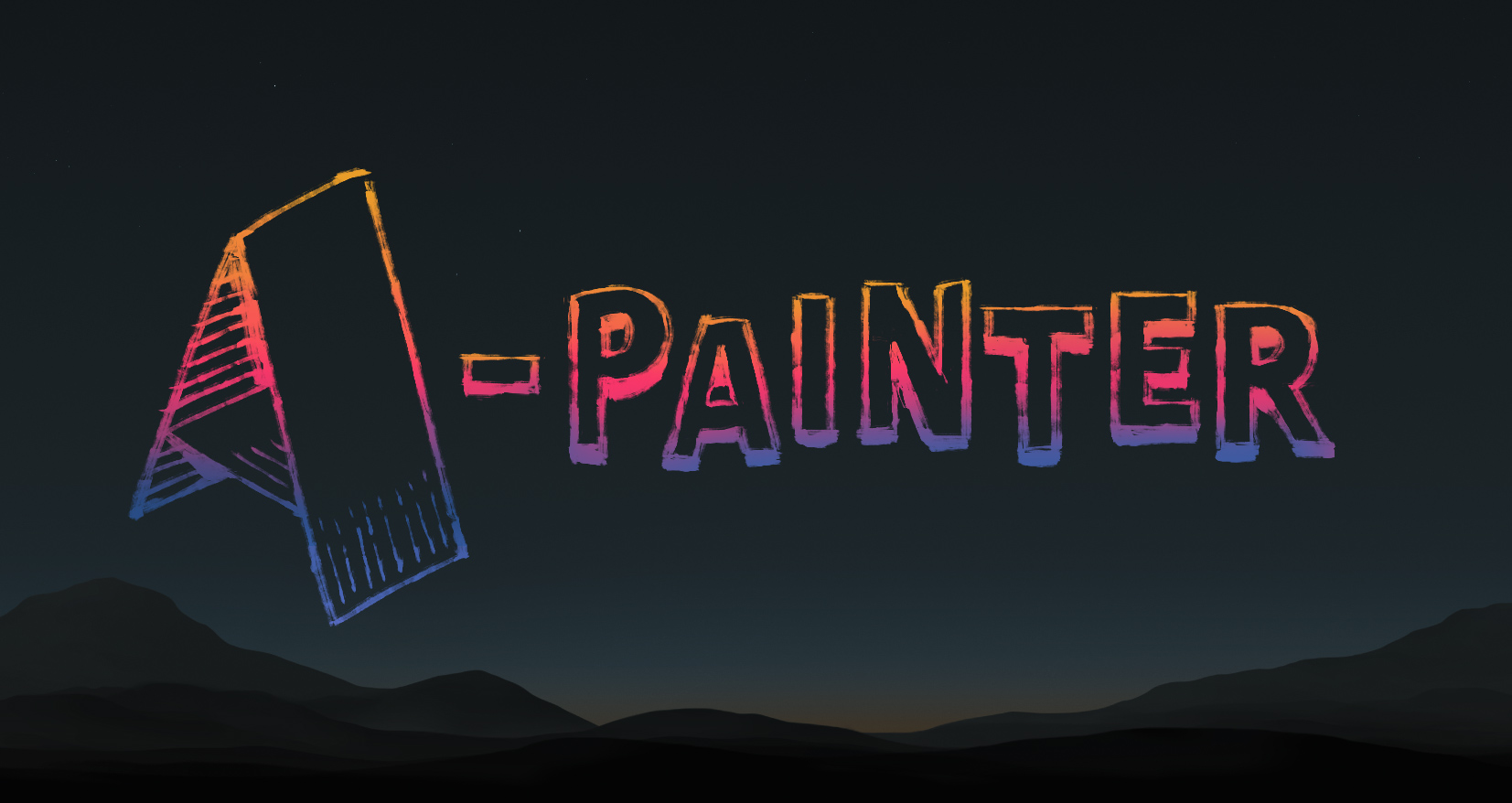Paint in VR in your browser. Read more!
- Grab a WebVR-enabled browser. Currently only the experimental Chromium build on Windows supports the Vive controllers. (You will need to enable these flags for WebVR and Gamepad Extensions:
chrome://flags#enable-webvrandchrome://flags#enable-gamepad-extensions.) - Head to https://aframe.io/a-painter/ and start painting. See the blog post for some instructions.
- Painted something beautiful? Share it on this GitHub issue!
git clone [email protected]:aframevr/a-painter && cd a-painter
npm install
npm startThen, load http://localhost:8080 in your browser.
- url (url) Loads a painting in apa format
- urljson (url) Loads a painting in json format
- sky (image url) Changes the sky texture (empty to remove sky)
- floor (image url) Changes the floor texture (empty to remove)
- bgcolor (Hex color without the #) Background color
To create a new brush, implement the following interface:
BrushInterface.prototype = {
init: function () {},
addPoint: function (position, orientation, pointerPosition, pressure, timestamp) {},
tick: function (timeOffset, delta) {}
};-
init (): Use this for initializing variables, materials, etc. for your brush.
-
addPoint (Mandatory): It will be called every time the brush should add a new point to the stroke. You should return
trueif you've added something to the scene andfalseotherwise. To add some mesh to the scene, every brush has an injectedobject3Dattribute that can be used to add children to the scene.- position (vector3): Controller position.
- orientation (quaternion): Controller orientation.
- pointerPosition (vector3): Position of the pointer where the brush should start painting.
- pressure (float[0..1]): Trigger pressure.
- timestamp (int): Elapsed milliseconds since the starting of A-Painter.
-
tick (Optional): Is called on every frame.
- timeOffset (int): Elapsed milliseconds since the starting of A-Painter.
- delta (int): Delta time in milliseconds since the last frame.
Development Tip: set your brush as the default brush at the top of
src/components/brush.js (brush: {default: 'yourbrush'}) while developing so
you don't have to re-select it every time you reload.
Every brush will have some common data injected with the following default values:
this.data = {
points: [],
size: brushSize,
prevPosition: null,
prevPointerPosition: null,
numPoints: 0,
maxPoints: 1000,
color: color.clone()
};- points (Array of vector3): List of control points already painted in the current stroke with this brush. (It's updated on every call to
addPoint.) - size (float): Brush size. (It's defined when the stroke is created.)
- prevPosition (vector3): The latest controller position (from the last
addPointcall). - prevPointerPosition (vector3): The latest pointer position (from the last
addPointcall). - numPoints (int): Length of
pointsarray. - color (color): Base color to be used on the brush. (It's defined when the stroke is created.)
To register a new brush we should call AFRAME.registerBrush:
AFRAME.registerBrush(brushName, brushDefinition, options);Register brush needs three parameters:
- brushName (string): The unique brush name.
- brushDefinition (object): The custom implementation of the previously defined
brushDefinition. - options (object [Optional]):
- thumbnail (string): Path to the thumbnail image file.
- spacing (float): Minimum distance, in meters, from the previous point needed to call
addPoint. - maxPoints (integer): If defined,
addPointwon't be called after reaching that number of points.
A-Painter uses the following custom binary file format to store the drawings and its strokes.
string magic ('apainter')
uint16 version (currently 1)
uint8 num_brushes_used
[num_brushed_used] x {
string brush_name
}
uint32 num_strokes
[num_strokes] x {
uint8 brush_index (Based on the previous definition order)
float32x3 color (rgb)
float32 size
uint32 num_points
[num_points] x {
float32x3 position (vector3)
float32x4 orientation (quaternion)
float32 intensity
uint32 timestamp
}
}
string = uint8 (size) + size * uint8
